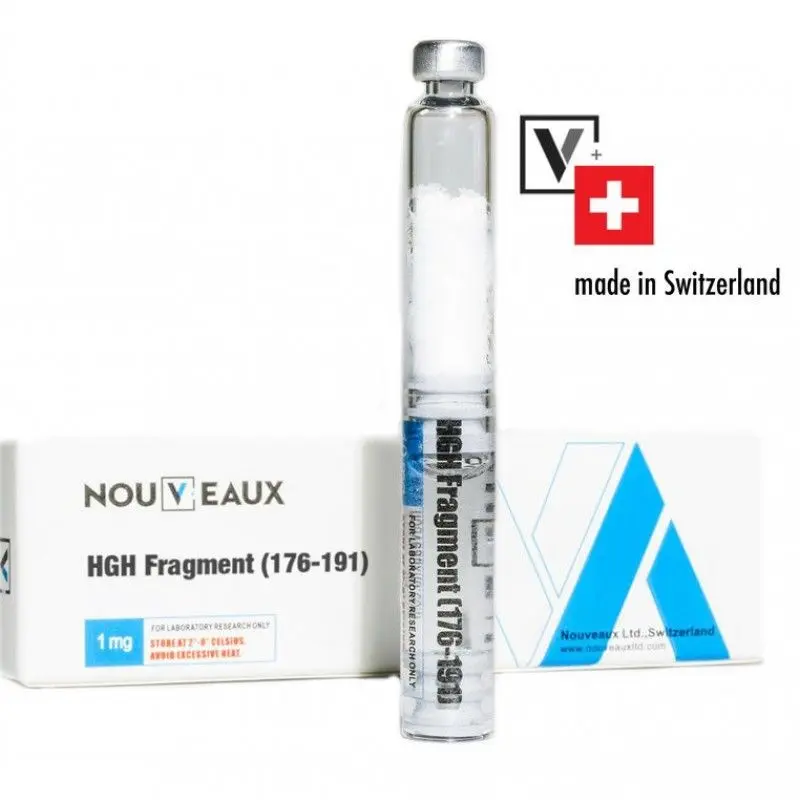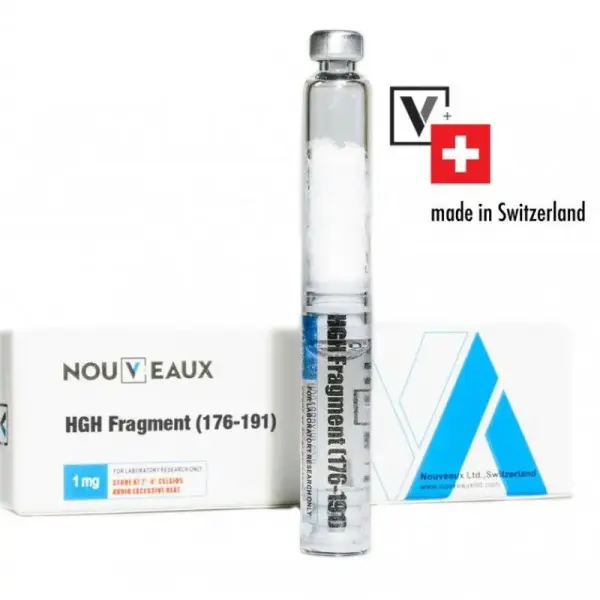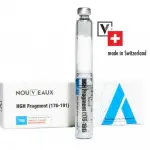HGH Fragment (176-191) Nouveaux Ltd
HGH Fragment (176-191) Nouveaux Ltd
Description
The HGH Fragment is a modified form of amino acids 176-191 of the human Growth Hormone (GH) polypeptide. This peptide, as the name implies, is a piece of the 191 amino chain that makes up growth hormone, from positions 176 through 191 to be exact. This fragment has been shown to induce lipolysis, or fat breakdown, and even inhibits lipogenesis, which is the transformation of food materials into fat stored in the body. Research studies have shown that these happens both to humans and to animals. This short amino-acid chain that make up Fragment 176 is only about 100% of the length of the entire strand of growth hormone and seems to have no other typical positive or negative effects that growth hormone does such as actual growth of tissues or insulin resistance. HGH Fragment (176-191) is a sterile, non-pyrogenic, white lyophilized powder intended for subcutaneous or intramuscular injection, after reconstitution with sterile Water for Injection (0,3% m-Cresol).
Mechanism of action
Investigators and scientists at several studies and researches discovered that the fat-reducing effects of GH appear to be controlled by a small region near one end of the GH molecule. This region consists of amino acids 176-191, and is less than 10% of the total size of the GH molecule and appears to have no effect on growth or insulin resistance.
It works by mimicking the way natural GH regulates fat metabolism but without the adverse effects on blood sugar or growth that is seen with unmodified GH. More specifically, GH cannot be used as an anti-obesity treatment due to adverse effects:
Fluid retention
Diabetogenic (in high doses)
On the contrary, HGH fragment can produce ac inhibition of LPL activity in adipose tissue and stimulate lipolysis in adipocytes. At the same time, HGH fragment appears to have no effect on growth or insulin resistance. In that way treatment with HGH fragment cannot cause diabetogenic problems or influence the insulin metabolism. Also HGH fragment cannot cause fluid retention.
These segments of the synthetic peptides HGH Fragment (176-191) have been investigated for their in vivo effects in laboratory mice musculus. Research results have shown that HGH Frag (176-191) nave resulted to a short-period increase in blood glucose and amore sustained increase in plasma insulin, together with other fragments such as 172-191, 177-191 and 178-191. In addition, the researchers have suggested that functionality of the peptide depends not only in the informational sequence but should also have the correct physical configuration. Also, this fragment, being a region of high accessibility to proteases and also rich in praline, have been demonstrated to affect the conformational change in the cytoplasmic domain of the band 3 of erythrocyte membrane protein by serving as the hinge for the pivoting of the two subdomains. This then suggest that such residue is significant in conformational changes be serving as sites for peripheral protein binding in some body cells.
In another study on animal sub



